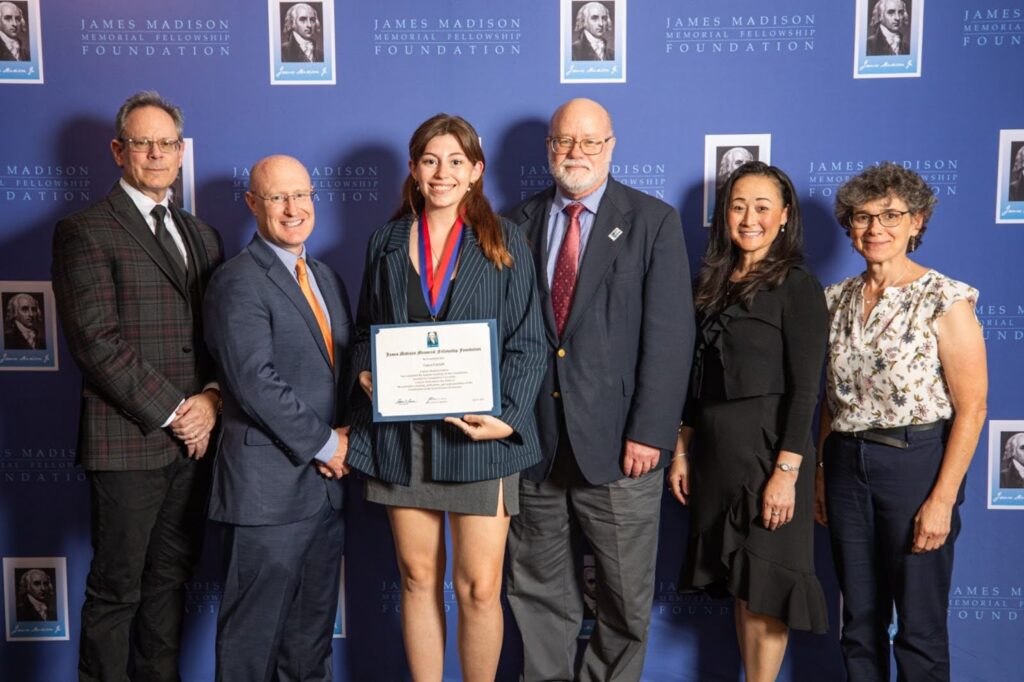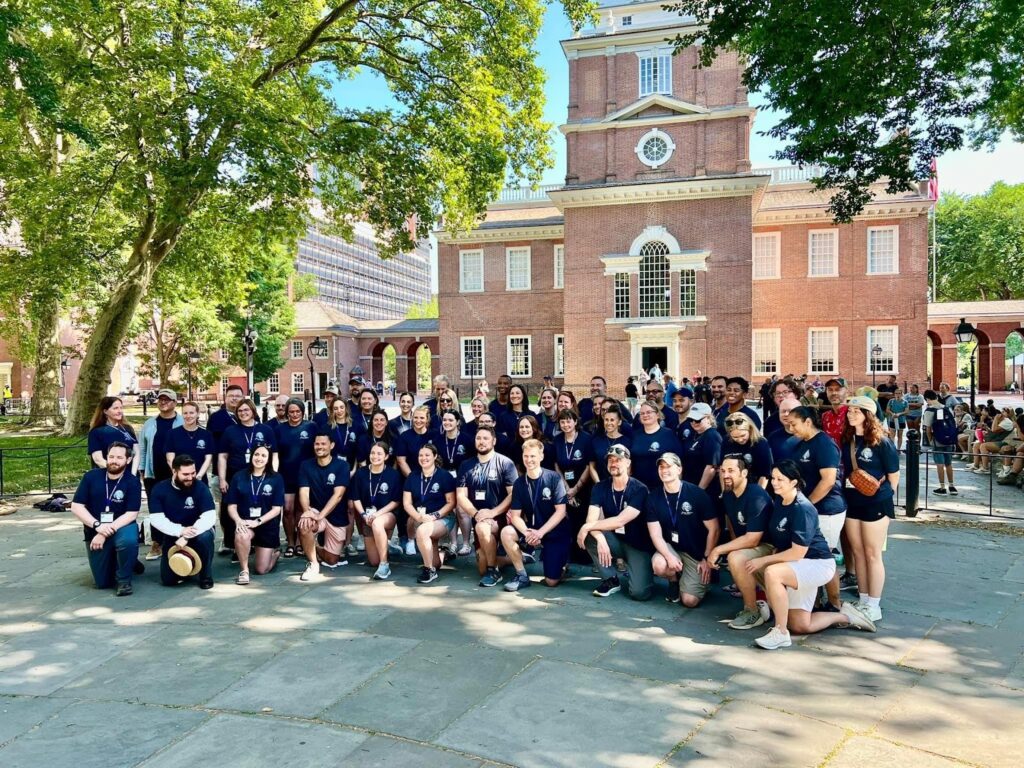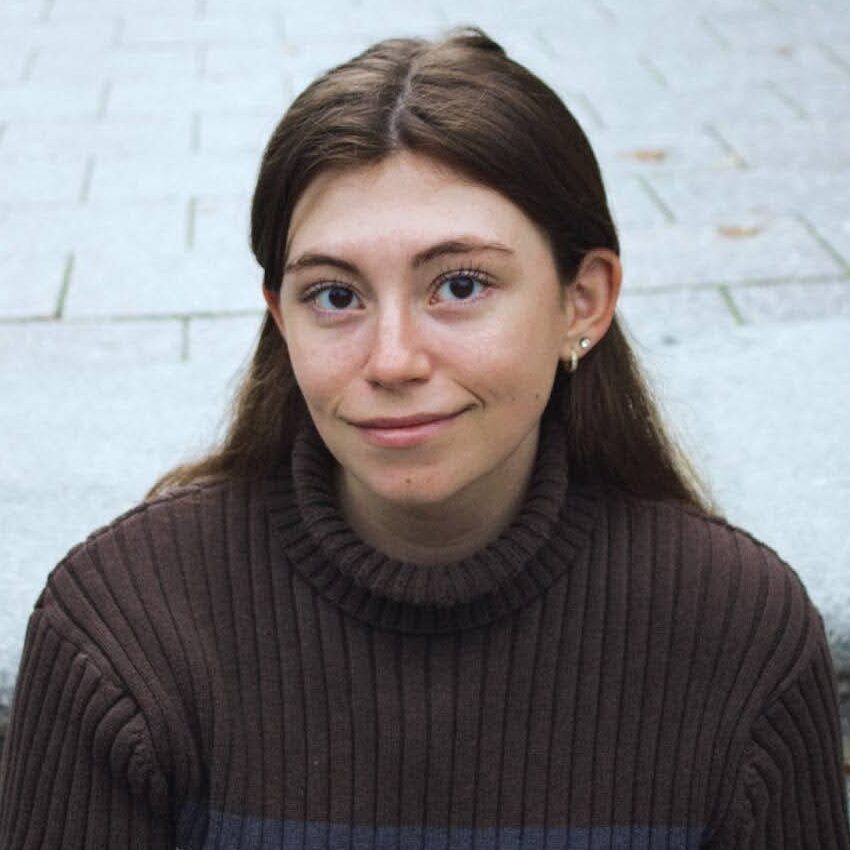Laura Curioli on Winning the James Madison Fellowship Through History and Education

The James Madison Memorial Fellowship is a prestigious award that supports aspiring and current educators dedicated to teaching the U.S. Constitution at the secondary school level. Each year, one fellow is selected per state to receive a stipend toward a master’s degree in history, political science, or education with a constitutional focus. Through intensive academic training and a unique Summer Institute in Washington, D.C., the fellowship equips educators to bring a deeper understanding of American government into their classrooms. In this interview, we speak with Laura Curioli, Maine’s 2023 James Madison Fellowship recipient, about how the fellowship has shaped her graduate studies and future goals. Laura, a passionate historian and educator, shares her vision for civic education and what’s next in her journey.
Can you tell us about your background and why you pursued education and history?
I have been interested in the fields of education and history my entire life. When the time came for me to choose a degree program, I realized I did not want to focus solely on one career path, so I opted for a double major program in both secondary education and historical studies. It is my opinion that the two fields can create a deeper understanding of one another when studied together. There is a history of development that has led educators to teach subjects in a certain way, and why school systems have certain standards within their courses. A social studies educator who teaches an array of subjects should comprehend the historiographical nature of those fields so that they are able to present the significance of those topics and their development across time.
Then, what inspired you to attend graduate school for a master’s in history?
As a secondary education student, you come to understand that we are all lifelong learners, and that education never truly stops. I felt I still had much to learn in the historical field, and wanted to expand my skill set. By pursuing a master’s degree in history, I would become a qualified historical researcher, an improved learner, and a better educator.

You then applied for the James Madison Memorial Foundation Fellowship. Can you share how you came across this fellowship and the application process?
I had not heard of the James Madison Memorial Fellowship Foundation until my senior year of my undergraduate career. The Advising Center of the College of Education and Human Development at my university sent out a call for interested individuals, and I felt qualified to apply because I was in my final year of completing two academic majors, which were cited as important background degrees to hold if the individual was interested in applying. I met with the director of our Office of Major Scholarships and an advisor from the political science department, both of whom helped me organize my materials and review the steps for applying.
I had the privilege of great campus services and departments who supported me through the process. Also, I was able to rely on professors in my department, with whom I had fostered good academic relationships, to write recommendation letters for me, as they had witnessed my growth as a scholar. As an individual, involvement in my campus community and working hard at my coursework were essential as a qualifier for the fellowship. The fellowship program likes to see individuals who have excellent academic standing, as well as strong ties to their advisors, faculty, and fellow students because a major aspect of the fellowship is a month in DC surrounded by fellow students, secondary education teachers, and fellowship faculty, where you will foster strong academic relationships and build connections to help develop your skills as an educator.
Within that month, you will also be making your way through intense coursework, and you must have the diligence to dedicate yourself to completing and excelling at those assignments.
How has the fellowship been while pursuing your master’s? In addition to your coursework, what projects were you involved in?
The highlight of my fellowship experience was the academic Summer Institute I attended in Washington, D.C. The institute is a required aspect of the fellowship where students spend a month living in the nation’s capital while taking a six-credit intensive course on the making of the U.S. Constitution, sponsored through Georgetown University and the Foundation.
In addition to daily classwork, lectures, discussions, and writing research papers, the Foundation ensures the fellows are given the opportunity to experience all aspects of government in the capital. We were able to tour the Supreme Court, Capitol Building, the White House, Library of Congress, Arlington Cemetery, multiple Smithsonian museums, and take longer field trips to locations such as Philadelphia and Mount Vernon. The month spent in D.C. is an immersive academic experience, and also helps you foster great relationships with educators from all across the country.
The fellowship can truly advance your career as an educator in the fields of history and government. You are provided many primary sources, books, and articles prior to and during the summer course that can be utilized in your own classroom once you have mastered their arguments and lessons. The summer course also inspires you to reframe how you may teach the American government in your own classroom, as well as American history. Some students are also selected to contribute book reviews or articles to the journal the institute publishes, which gives us the opportunity to create publications that can reinforce our credentials as scholars and educators.

Finally, what’s the next step for you? Can you share any advice and tips about applying for this or similar fellowships?
As part of my fellowship, I am required to teach at the secondary level in the field of American History (specifically on the Constitution) for two years. I am also in the process of applying to PhD programs, where I hope to either pursue a degree in history, English, or higher education policy. I intend to begin my career as an educator in secondary schools, and then continue to get a PhD so that I can develop academic books and textbooks for future educators to utilize.
My biggest piece of advice is to reach out to your state’s most recent fellow and build a working relationship with them! Previous fellows can help you apply, as well as write a letter of recommendation, which is certainly significant during application reviews. Those fellows most likely will know the faculty at the institute as well, or when orientation events occur, and can help you access those resources prior to applying so that you are prepared and know what to expect upon application and acceptance!
Want to find more Education fellowships or fully funded master’s programs? Be sure to make a free ProFellow account and search the database today!

© 2025 ProFellow, LLC. All rights reserved.







